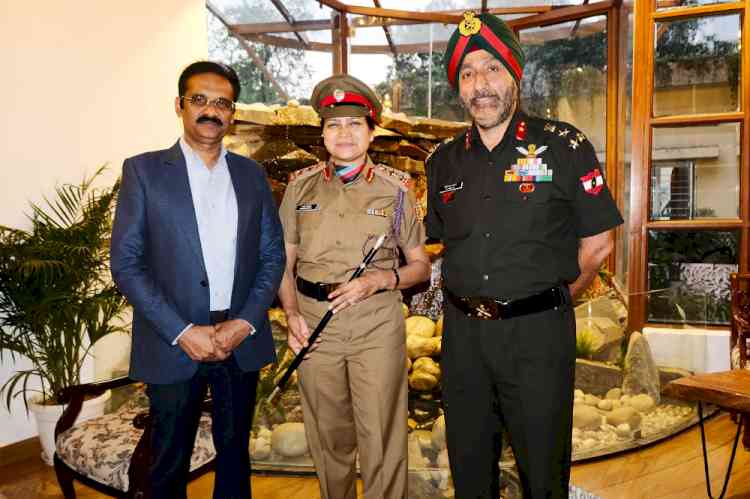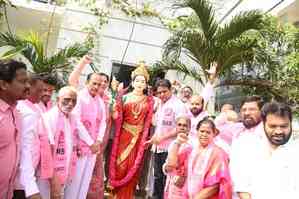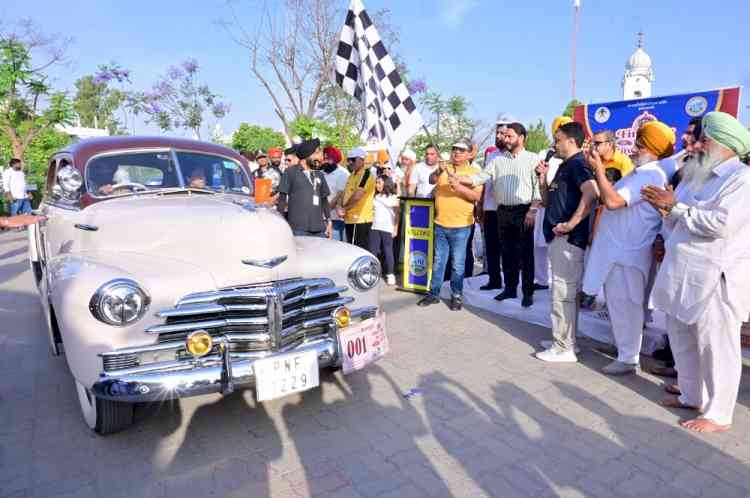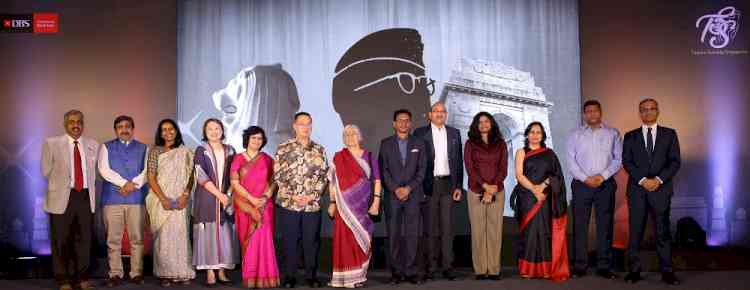Mitigation strategies on Climate Change discussed

Adopting a frugal lifestyle, using locally available materials along with hi-tech horticultural and forestry-based ecotourism can go a long way in solving the twin motives of environment and livelihood conservation. Besides, community farming can be an effective way to tackle the problem of small landholdings.
These were some of the recommendations that emerged out of the lecture-cum-seminar on climate action and sustainable development held at Dr YS Parmar University of Horticulture and Forestry (UHF), Nauni. The main aim of the programme was to promote dialogue for the exchange of knowledge and experiences on the topic. The programme was hosted by UHF’s Department of Environmental Science in partnership with Centre for Environment Education (CEE) and Deutsche Gesellschaft für Internationale Zusammenarbeit GmbH (GIZ)-India.
The lecture is a part of the second phase of the Indo-German initiative, Climate Change Adaptation in Rural Areas of India (CCA-RAI) under which GIZ and CEE are holding 16 lecture events across four Indian states- Tamil Nadu, Himachal Pradesh, Punjab and Telangana. The series brings together a diverse group of stakeholders including students, researchers, policymakers, NGO representatives and practitioners on a common platform.
In the keynote address, Dr HC Sharma, UHF Vice Chancellor stressed on the need to develop transgenic varieties of crops which are disease resistant and can survive adverse climatic conditions. “In the past 50 years, we have made a drastic change in our lifestyles. The increase in temperature will engineer a change in crop diversity and have an adverse effect on the biodiversity. The landscape changes due to climate change will also alter the profile of scavengers and pollinations,” said Dr Sharma.
He stressed on the urgent need to adopt water conversation techniques to recharge the soil and sustain agricultural activities. Dr Sharma said that the climate change was projected to decrease agricultural productivity in the tropics and subtropics, resulting in food crisis in the near future. He urged the scientists to develop high yielding disease resistant crop varieties so that more food could be grown per unit of input. The need to exploit wild relatives of crops for resistance to insects and modern biotechnology tools was also discussed during the seminar.
The keynote address was followed by three thematic workshops on various topics. These workshops were moderated by Dr Anand Sharma, DDG IMD, Dr SK Bhardwaj, Head UHF’s Department of Environmental Science and Dr Krishan Kumar, Head UHF’s Department of Fruit Science. The recommendations from these sessions were discussed during the final plenary session.
While moderating the session on Youth for Climate Actions, Dr SK Bhardwaj pointed out that being a young country where more than two-third population is below the age of 35, the youth are going to face the maximum brunt of climate change and therefore needed to be educated to change their lifestyle by living in harmony with nature
The experts were of the view that there was a need to set up Disaster Reduction Mechanisms and multi-hazards warning systems. Another important recommendation related to policy mechanism was the effective implementation of policies in the areas with a past history of disaster occurrence.
During the discussion on the role of NGOs, it was decided to these organizations must work in close coordination with the various government organisations and should be in sync with official policies. Identification of whistleblowers who raise their voices for conservation of environment also need to be identified and supported by the NGO working in the area.
The role of youth in environment conservation was also discussed during the programme. Social Media campaigns regarding mitigation strategies for environment conservation, students as Eco-risk managers and mechanism for feedback were some of the other important recommendations, which came out of the seminar.
Earlier, Dr Puja and Dr Abdesh Gangwar, Programme Director of CEE talked about the role of education for empowering communities in tackling the climate change adverse impacts and leapfrogging towards sustainable lifestyles and development. Over 250 persons including resource persons from DEST, India Meteorology Department, UHF Nauni, CEE and research students of College of Forestry took part in the event.

 cityairnews
cityairnews 
















